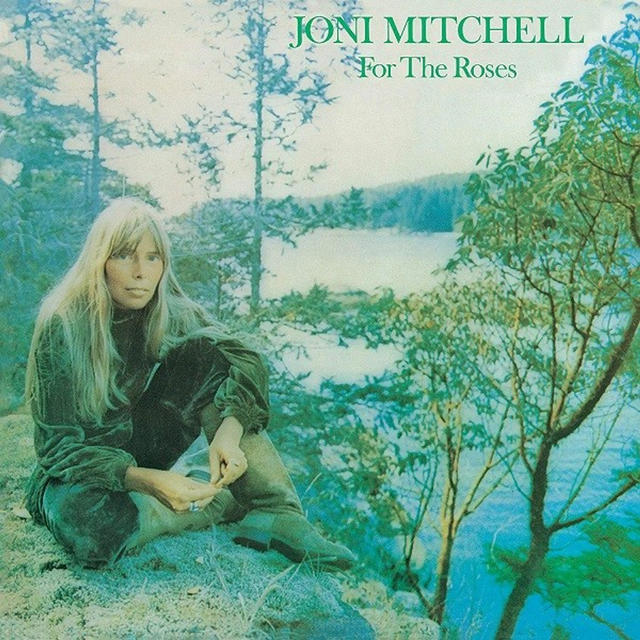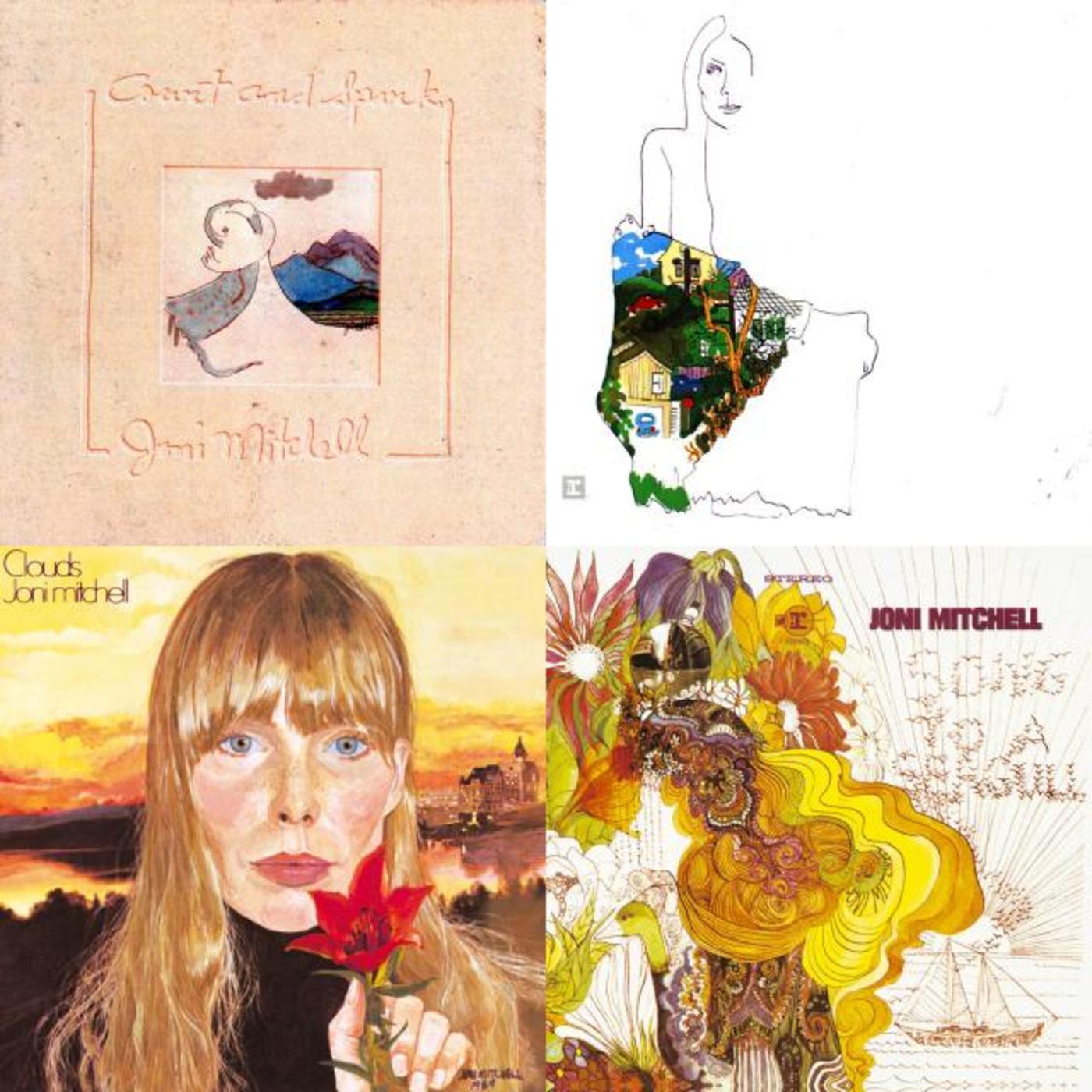November 1972: Joni Mitchell Releases FOR THE ROSES

It's a situation most artists dream of facing: how do you follow a masterpiece? Such was the case for Joni Mitchell in 1972 when it came time for the singer and songwriter to craft her fifth studio album, For the Roses, in the shadow of 1971 instant classic, Blue.
The success of Blue had thrust Mitchell into the harsh spotlight of the rock world, a position she was not at all comfortable with. It was enough for her to sell her Laurel Canyon home and move to a small stone house along British Columbia's Sunshine Coast: "Fame made me really nervous and uncomfortable," Mitchell said in 2003 documentary, A Woman Of Heart And Mind (via JoniMitchell.com). "So I isolated myself and I made my attempt to get back to the garden. I lived with kerosene, stayed without electricity for about a year. I was going down and with that came a tremendous sense of knowing nothing. Western psychology might call it a nervous breakdown; in certain cultures, they call it a shamanic conversion. I read nearly every psychology book I could get my hands on and threw them all against the wall, basically. But depression can be the sand that makes the pearl."
Mitchell's sojourn to British Columbia resulted in For the Roses, released November 21, 1972. The LP arrived with cheeky lead single, "You Turn Me On, I'm a Radio," which the artist crafted after friend and label head David Geffen requested a "hit single." The song turned out to be Mitchell's first top 40 hit in America, peaking at #25 on the Hot 100 for February 3, 1973. The #1 song in America that week: Elton John's "Crocodile Rock." It climbed as high as #13 on the Billboard Hot Adult Contemporary Tracks chart. In her home country of Canada, the tune peaked at #10, making it her first Canadian top 10 hit. "It was just my peculiar, warped sense of humor," was the singer's summation of the track.
The raw and brutally personal album found Mitchell working out relationship issues ranging from a paramour hooked on heroin ("Cold Blue Steel and Sweet Fire"), to the struggle of keeping things together with a "rock 'n' roll man" who's constantly being tempted by the "Blonde in the Bleachers," which features Stephen Stills on guitar.
The critical response to For the Roses was primarily positive; Philadelphia Daily News called the LP "impeccable," while the Gettysburgian raved that "For the Roses is another excellent album for Joni Mitchell. It is different from her last effort, Blue, in that it is not melancholy, but rather a statement of realistic facts and yearnings."
Fans snapped up enough copies of For the Roses that it actually outperformed Blue on the US charts, peaking at #11 on the Billboard 200 (Blue made it to #15 on the same chart).
FUN FACT: The single for "You Turn Me On, I'm a Radio" features the only non-LP b-side of Joni Mitchell's career: "Urge for Going," a Mitchell composition originally recorded by Tom Rush for his 1968 album, The Circle Game.


